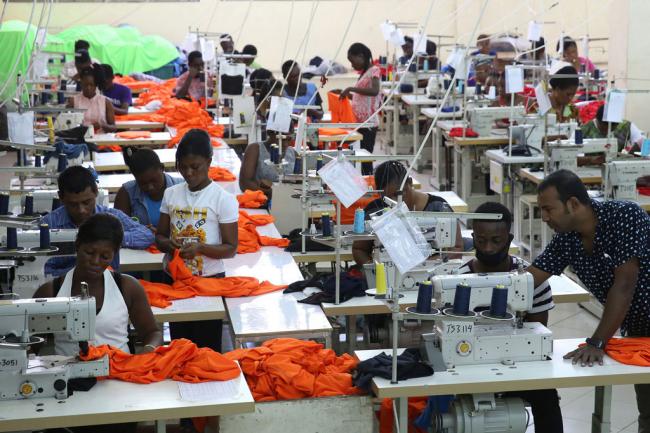
Two billion move out of extreme poverty over 25 years – UN flagship development report
“This new global Human Development Report is an urgent call to tackle one of the world’s great development challenges - providing enough decent work and livelihoods for all,” UN Development Programme (UNDP) Administrator Helen Clark said, launching the report at a ceremony in Addis Ababa, Ethiopia.
The 2015 Report, Work for Human Development, an editorially independent publication of the UNDP, calls for equitable and decent work for all. In doing so, it encourages governments to look beyond jobs to consider the many kinds of work, such as unpaid care, voluntary, or creative work that are important for human development, UNDP said in a summary of the annual report.
‘Decent work’ is defined by the UN International Labour Organization (ILO) as opportunities for work that is productive and delivers a fair income, security in the workplace and social protection for families, better prospects for personal development and social integration, freedom for people to express their concerns, organize and participate in the decisions that affect their lives and equality of opportunity and treatment for all women and men.”
As for the report’s new Human Development Index (HDI), Sub-Saharan Africa continues to rank among the lowest, but 12 countries have individual HDI levels that put them in the high or medium human development group, and they are: Botswana, Cabo Verde, Congo, Equatorial Guinea, Gabon, Ghana, Mauritius, Namibia, Sao Tome and Principe, Seychelles, and Zambia.
The Index is a summary measure of average achievement in key dimensions of human development: a long and healthy life, being knowledgeable and have a decent standard of living.
The countries with the steepest drops in HDI rank in 2014 were reported as Libya, which slipped 27 places and Syria, which slipped 15 places.
The top five countries in rank order of HDI are: Norway, Australia, Switzerland, Denmark and Netherlands, with no changes from 2014.
The bottom five countries in rank order of HDI are: Niger, Central African Republic, Eritrea, Chad, and Burundi.
The report’s lead author Selim Jahan said: “Human progress will accelerate when everyone who wants to work has the opportunity to do so under decent circumstances. Yet in many countries, people are often excluded from paid work, or are paid less than others for doing work of the same value.”
The report released on Mondaysaid “with better health and education outcomes and reductions in extreme poverty, two billion people have moved out of low human development levels in the last 25 years, the report says.”
However, 830 million people are still classified as working poor, living on under $2.00 a day, and more than 200 million people – including 74 million youth – are unemployed, while 21 million people are currently in forced labour, according to the report.
The report also presented a detailed new estimate of the share of all work, not just paid work, between men and women. While women carry out 52 percent of all work, “glaring inequalities” remain.
“Women are less likely to be paid for their work than men, with three out of every four hours of unpaid work carried out by women,” it said. “In contrast, men account for two of every three hours of paid work. When women are paid, they earn globally, on average, 24 percent less than men, and occupy less than a quarter of senior business positions worldwide,” added the report.
The report noted that despite new opportunities, more jobs are now becoming vulnerable and a wide digital divide remains.
The report also said that work opportunities can be fostered by the Sustainable Development Goals. For example, it said, that around 45 million additional health workers will be needed to meet the health objectives of the global goals that would see the global health workforce increase in size from 34 million in 2012 to 79 million by 2030.
Photo: World Bank/Dominic Chavez
Support Our Journalism
We cannot do without you.. your contribution supports unbiased journalism
IBNS is not driven by any ism- not wokeism, not racism, not skewed secularism, not hyper right-wing or left liberal ideals, nor by any hardline religious beliefs or hyper nationalism. We want to serve you good old objective news, as they are. We do not judge or preach. We let people decide for themselves. We only try to present factual and well-sourced news.







